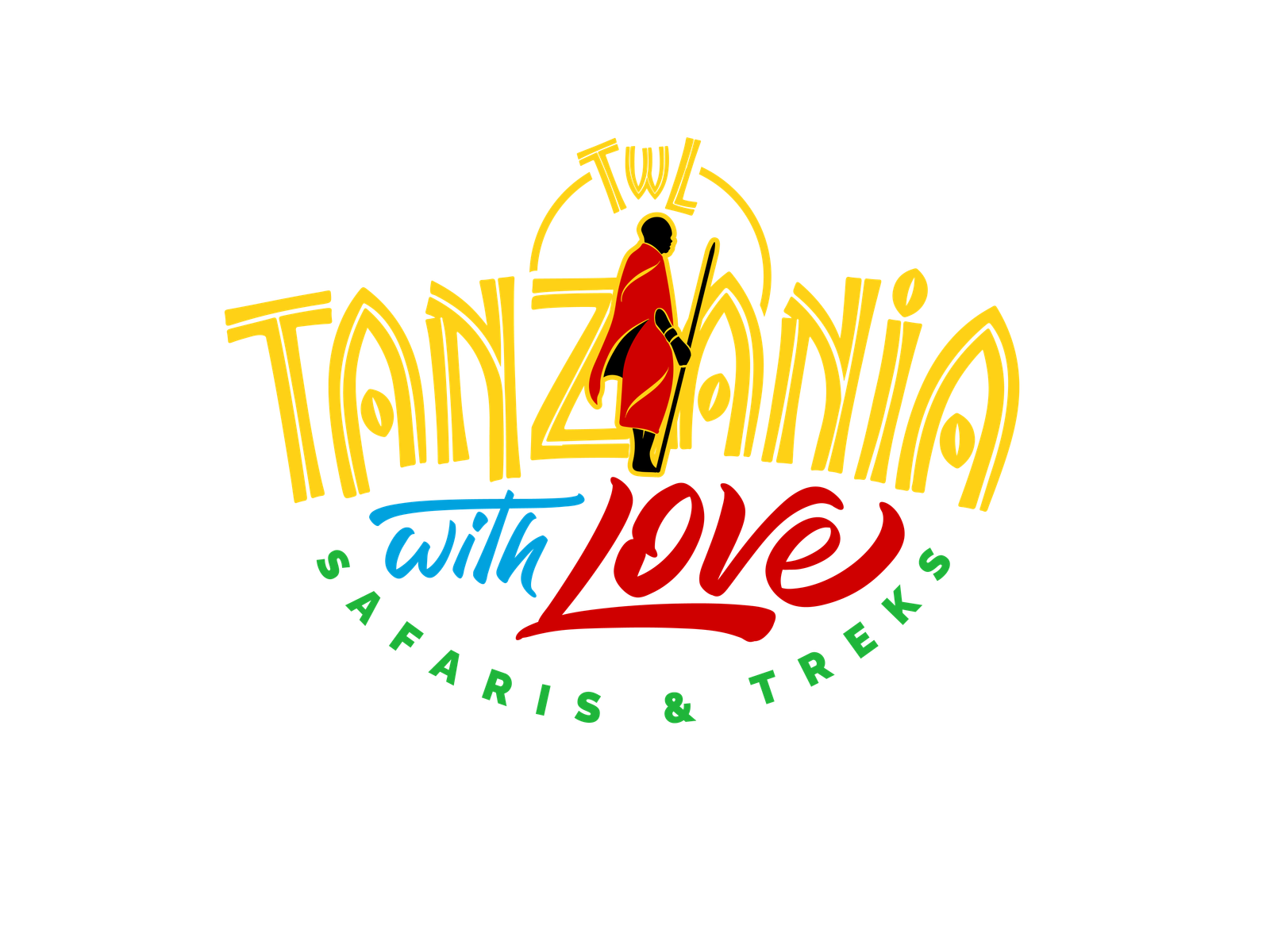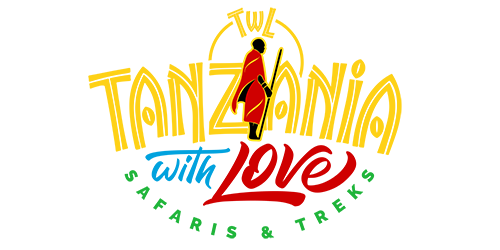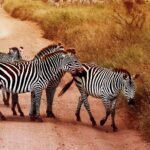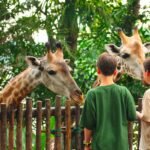
Planning your visit to Tanzania
Your safari adventure begins in the vibrant town of Arusha, conveniently accessible from Kilimanjaro International Airport (JRO), less than 50 kilometres away. The drive from the airport to Arusha takes approximately 1 hour. Alternatively, if arriving from Dar es Salaam Airport (DAR), you can take a connecting flight to Arusha Airport (ARK). Travellers coming from Zanzibar after a beach holiday will also find frequent flights to Arusha.
Feel free to contact us before booking your flight. We’ll help you choose the most suitable airport and take care of all your onward travel arrangements.
Best time to visit Tanzania
Tanzania is a year-round safari destination, providing remarkable wildlife viewing opportunities regardless of when you visit. However, the ideal time for your safari experience depends on the destinations you wish to explore and the type of safari you’re interested in.
At TWL, we tailor your itinerary to ensure you’re in the right parks and regions for the best wildlife encounters. We recommend the perfect areas to visit and customise your safari based on your preferred travel time, interests, and budget. Whether you’re a wildlife enthusiast, a photographer, or simply seeking adventure, Tanzania has something special to offer throughout the year. Generally, the dry season (June to October) is the best time for wildlife viewing, while the wet season (November to May) is ideal for bird watching and scenic photography. The Calving season runs from January to March. This is the period you can watch intense big cat action. The famous river crossings (Grumeti and Mara) during the Wildebeest migration usually happens between June to September. You should avoid April and May as it rains heavily in Tanzania during this time.
Accommodations
At TWL, we understand that every traveller is unique, which is why we offer various accommodation options to suit every need. Your choice of accommodation will depend on your budget, the type of experience you desire, and the parks you wish to visit. Here are some of the types of accommodations available on this trip:
Hotels: In major towns like Arusha and Karatu, you’ll find hotels ranging from budget to luxury. These larger buildings often have multiple rooms and facilities like restaurants, bars, and sometimes pools, offering a comfortable stay with various services.
Lodges: Lodges can vary from simple, rustic accommodations to luxurious retreats. Often situated in or near national parks and reserves, they offer proximity to wildlife. Depending on the location and style, lodges can be permanent structures or semi-permanent tented camps.
Tented Camps: For a more immersive safari experience, tented camps provide spacious and well-equipped tents, often including en-suite bathrooms. These camps range from basic to quite luxurious, offering high comfort and service.
Mobile Camps: Set up in temporary locations, mobile camps are often used for specific wildlife migrations or seasonal movements. They provide a more adventurous experience with comfortable tents but fewer amenities compared to permanent camps.
Bush Camps: Similar to mobile camps, bush camps are typically set up in remote locations. They offer a more authentic and secluded safari experience. While amenities may be more than basic, they provide a unique opportunity to connect with nature.
No matter your preference, we ensure your stay is as comfortable and memorable as possible.
Food arrangements and special requests
At your chosen accommodation, we provide a variety of dining options. You can enjoy picnic boxes for afternoon lunches or select hot meals with range of local and international dishes, especially for larger groups. We take care of dietary restrictions, including food allergies. Our offerings include vegetarian, eggless, and Halal options. Additionally, if you have any special requests or are celebrating a special occasion, please inform us in advance. Our goal is to provide exceptional service during your Tanzania safari adventure.
Passport and Visa Requirements:
Yellow Fever Vaccination
Proof of yellow fever vaccination is only required upon arrival if you are travelling from a country with a risk of the virus. We request you to check this before flying to Tanzania.
An important note, however. If you’re transiting through one of the yellow fever high-risk countries for a period of 12 hours or more, you will be required to receive the yellow fever vaccination.
Travel Insurance:
Currency:
Mobile SIM Cards
Language
Weather and Clothing:
Tanzania experiences a tropical climate characterized by a wet season from March to May and a dry season from June to October. It’s advisable to wear light, breathable clothing during your visit, along with a light jacket for cooler evenings and early mornings. Long sleeves and covered pants are recommended to protect against insects. Avoid wearing bright colors or dark blue and black fabrics, as they may attract tsetse flies. Instead, stick to neutral and earthy tones. For footwear, opt for sturdy, closed and comfortable shoes. In case, you have chosen any activities such as walking safari or hiking then we recommend waterproof hiking boots. Also, keep a mask handy with you in case, it gets dusty.
Luggage:
Safety and Security:
Food and Water:
Tap water is unsafe to drink, so it’s best to stick to bottled or boiled water. Tanzanian cuisine is diverse and emphasizes on fresh ingredients. Be sure to try local dishes like ugali (maise porridge), nyama choma (grilled meat), and mchicha (leafy greens).
Medical kit:
It’s advisable to carry these medications in case you’re away from town:
If you have any known medical conditions, please inform us when you confirm the trip and ensure that you carry the required medications.
Tipping:
Safari etiquette:
Littering:
To maintain the beauty of Tanzania’s national parks and support environmental conservation, please do not litter. Dispose of waste in designated bins and avoid throwing tissue paper into toilet bowls to prevent clogging. Do not litter around lunch areas or feed birds or animals during the safari. If no bins are available, carry your waste until proper disposal facilities are available. Let’s work together to preserve these natural habitats for future generations.
At Tanzania with Love Safaris & Treks Limited, we are excited to announce our official representation on SafariBookings.com, a premier platform for exploring the finest safari experiences in Africa. As a trusted member of this renowned network, we are committed to delivering exceptional and personalized wildlife adventures in Tanzania. Being featured on SafariBookings.com highlights our dedication to providing memorable safaris and showcases our expertise in crafting unforgettable journeys to Tanzania’s most iconic destinations. Discover more about our offerings and explore the exceptional safaris we provide through our profile on SafariBookings.com.
Your safari adventure begins in the vibrant town of Arusha, conveniently accessible from Kilimanjaro International Airport (JRO), less than 50 kilometres away. The drive from the airport to Arusha takes approximately 1 hour. Alternatively, if arriving from Dar es Salaam Airport (DAR), you can take a connecting flight to Arusha Airport (ARK). Travellers coming from Zanzibar after a beach holiday will also find frequent flights to Arusha.
Feel free to contact us before booking your flight. We’ll help you choose the most suitable airport and take care of all your onward travel arrangements.
Tanzania is a year-round safari destination, providing remarkable wildlife viewing opportunities regardless of when you visit. However, the ideal time for your safari experience depends on the destinations you wish to explore and the type of safari you’re interested in.
At TWL, we tailor your itinerary to ensure you’re in the right parks and regions for the best wildlife encounters. We recommend the perfect areas to visit and customise your safari based on your preferred travel time, interests, and budget. Whether you’re a wildlife enthusiast, a photographer, or simply seeking adventure, Tanzania has something special to offer throughout the year. Generally, the dry season (June to October) is the best time for wildlife viewing, while the wet season (November to May) is ideal for bird watching and scenic photography. The Calving season runs from January to March. This is the period you can watch intense big cat action. The famous river crossings (Grumeti and Mara) during the Wildebeest migration usually happens between June to September. You should avoid April and May as it rains heavily in Tanzania during this time.
At TWL, we understand that every traveller is unique, which is why we offer various accommodation options to suit every need. Your choice of accommodation will depend on your budget, the type of experience you desire, and the parks you wish to visit. Here are some of the types of accommodations available on this trip:
Hotels: In major towns like Arusha and Karatu, you’ll find hotels ranging from budget to luxury. These larger buildings often have multiple rooms and facilities like restaurants, bars, and sometimes pools, offering a comfortable stay with various services.
Lodges: Lodges can vary from simple, rustic accommodations to luxurious retreats. Often situated in or near national parks and reserves, they offer proximity to wildlife. Depending on the location and style, lodges can be permanent structures or semi-permanent tented camps.
Tented Camps: For a more immersive safari experience, tented camps provide spacious and well-equipped tents, often including en-suite bathrooms. These camps range from basic to quite luxurious, offering high comfort and service.
Mobile Camps: Set up in temporary locations, mobile camps are often used for specific wildlife migrations or seasonal movements. They provide a more adventurous experience with comfortable tents but fewer amenities compared to permanent camps.
Bush Camps: Similar to mobile camps, bush camps are typically set up in remote locations. They offer a more authentic and secluded safari experience. While amenities may be more than basic, they provide a unique opportunity to connect with nature.
No matter your preference, we ensure your stay is as comfortable and memorable as possible.
At your chosen accommodation, we provide a variety of dining options. You can enjoy picnic boxes for afternoon lunches or select hot meals with range of local and international dishes, especially for larger groups. We take care of dietary restrictions, including food allergies. Our offerings include vegetarian, eggless, and Halal options. Additionally, if you have any special requests or are celebrating a special occasion, please inform us in advance. Our goal is to provide exceptional service during your Tanzania safari adventure.
Proof of yellow fever vaccination is only required upon arrival if you are travelling from a country with a risk of the virus. We request you to check this before flying to Tanzania.
An important note, however. If you’re transiting through one of the yellow fever high-risk countries for a period of 12 hours or more, you will be required to receive the yellow fever vaccination.
Highly recommended! Please obtain a comprehensive travel insurance for your entire stay period in Tanzania.
Tanzania’s official language is Swahili (Kiswahili), which is used in government, education, and official communications. English is also widely spoken and understood.
Tanzania experiences a tropical climate characterized by a wet season from March to May and a dry season from June to October. It’s advisable to wear light, breathable clothing during your visit, along with a light jacket for cooler evenings and early mornings. Long sleeves and covered pants are recommended to protect against insects. Avoid wearing bright colors or dark blue and black fabrics, as they may attract tsetse flies. Instead, stick to neutral and earthy tones. For footwear, opt for sturdy, closed and comfortable shoes. In case, you have chosen any activities such as walking safari or hiking then we recommend waterproof hiking boots. Also, keep a mask handy with you in case, it gets dusty.
Tanzania is generally safe, but as with any destination, taking precautions is essential. Avoid displaying valuables, especially in crowded areas, and remain vigilant of your belongings.
Tap water is unsafe to drink, so it’s best to stick to bottled or boiled water. Tanzanian cuisine is diverse and emphasizes on fresh ingredients. Be sure to try local dishes like ugali (maise porridge), nyama choma (grilled meat), and mchicha (leafy greens).
It’s advisable to carry these medications in case you’re away from town:
If you have any known medical conditions, please inform us when you confirm the trip and ensure that you carry the required medications.
Tipping is customary in Tanzania. Tanzanian hospitality is top class so tip safari guides, drivers, hotel staff and porters based on the quality of the service provided and your satisfaction.


Explore Tanzania with TWL: See It, Live It, Love It






safari@tanzaniawithlove.com
+65-94568089 (Singapore)
Click one of our contacts below to chat on WhatsApp